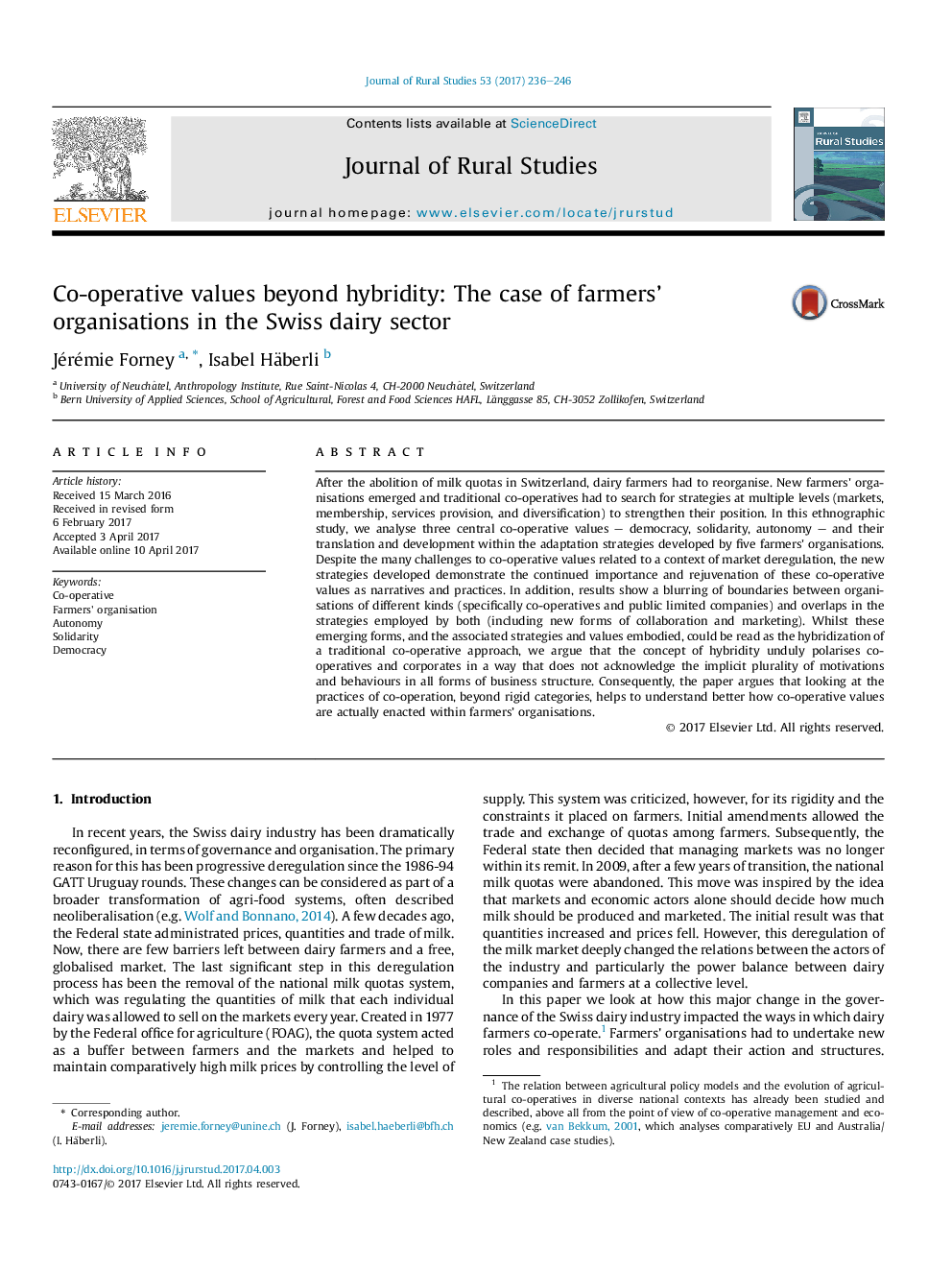| Article ID | Journal | Published Year | Pages | File Type |
|---|---|---|---|---|
| 6459970 | Journal of Rural Studies | 2017 | 11 Pages |
â¢The progressive deregulation of the dairy sector accelerated the restructuration of farmers' organisation in Switzerland.â¢A framing in terms of hybridity reinforces the binaries is criticizes.â¢Looking at a diverse economy of farmers' organisation allows a better understanding of the on-going social processes.â¢The values of democracy, solidarity and autonomy as narratives and practices reflect the diversity of co-operation.â¢Classical categorisation in terms of co-operatives or public limited companies hides the more complex reality of co-operation.
After the abolition of milk quotas in Switzerland, dairy farmers had to reorganise. New farmers' organisations emerged and traditional co-operatives had to search for strategies at multiple levels (markets, membership, services provision, and diversification) to strengthen their position. In this ethnographic study, we analyse three central co-operative values - democracy, solidarity, autonomy - and their translation and development within the adaptation strategies developed by five farmers' organisations. Despite the many challenges to co-operative values related to a context of market deregulation, the new strategies developed demonstrate the continued importance and rejuvenation of these co-operative values as narratives and practices. In addition, results show a blurring of boundaries between organisations of different kinds (specifically co-operatives and public limited companies) and overlaps in the strategies employed by both (including new forms of collaboration and marketing). Whilst these emerging forms, and the associated strategies and values embodied, could be read as the hybridization of a traditional co-operative approach, we argue that the concept of hybridity unduly polarises co-operatives and corporates in a way that does not acknowledge the implicit plurality of motivations and behaviours in all forms of business structure. Consequently, the paper argues that looking at the practices of co-operation, beyond rigid categories, helps to understand better how co-operative values are actually enacted within farmers' organisations.
